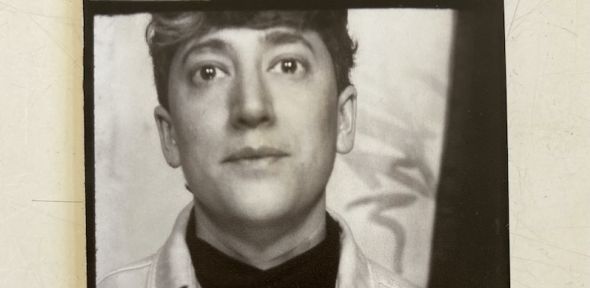
Leila Mukhida is Associate Professor in Modern German Studies, Deputy Director of the DAAD Cambridge Research Hub for German Studies, and Fellow of Trinity Hall. Before taking up their post in Cambridge, Dr Mukhida held a Postdoctoral Fellowship at King’s College London and taught German and Film at King’s College London and Queen Mary University of London.
Teaching interests:
Dr Mukhida teaches across German and Film Studies within the MMLL Faculty. At undergraduate level, they lecture and supervise on Ge1 (Modern Literature and Film); Ge6 (Transnational Texts: Turkish-German Literature and Film); Ge13 (Politics of Desire in German Cinema); CS5 (The Queer Body); CS6 (various topics in European Film); and GeC1 (Part II Translation). At postgraduate level, they teach queer and trans cinema for the Film and Screen Studies MPhil programme as well as post-1945 German-language literature and film for the Literature, Culture and Thought MPhil programme. Supervisor of Denise Henschel.
Research interests:
Dr Mukhida specialises in German and Austrian visual culture, with a focus on queer cinema, the Frankfurt School, and film sound; they are also interested in queer and trans film, literature, and theory beyond the German context. In their research and their teaching, they advocate for diversity and decolonization in German Studies. Their 2021 book, Sensitive Subjects: The Political Aesthetics of Contemporary German and Austrian Cinema (Berghahn Books), looks to early German-language film theory in order to explore how post-1989 films by directors including Valeska Grisebach, Michael Haneke, Andreas Dresen and Elke Hauck engender a kind of political sensitivity in viewers.
Dr Mukhida supervises PhD students in German and in Film and welcomes inquiries from potential MPhil and PhD students with research topics that correspond to their interests.
Published works:
- Sensitive Subjects: The Political Aesthetics of Contemporary German & Austrian Cinema (New York: Berghahn Books, 2021)
- ‘Choose Your Own Adventure’, New German Critique, 50:3 (November 2023), 149–161
- ‘The Talkie That Failed to Talk: An Exploration of Sounds in G. W. Pabst’s Kameradschaft (1931)’, Oxford German Studies, 49 (December 2020) 436-454
- 'Violence in the Age of Digital Reproducibility: Political Form in Valeska Grisebach’s Longing (2006)', German Politics & Society, 33 (May 2015), 172–185
- 'Against the Pull of Convention: Subversive Laughter in Angelina Maccarone’s Alles wird gut (1998)', German Life and Letters, 65 (Oct. 2012), 489-502
- Das Schönste Geschenk (2011). Film directed by Leila Mukhida and Subir Che Selia
Course contact for:
You can visit their Faculty profile here.


